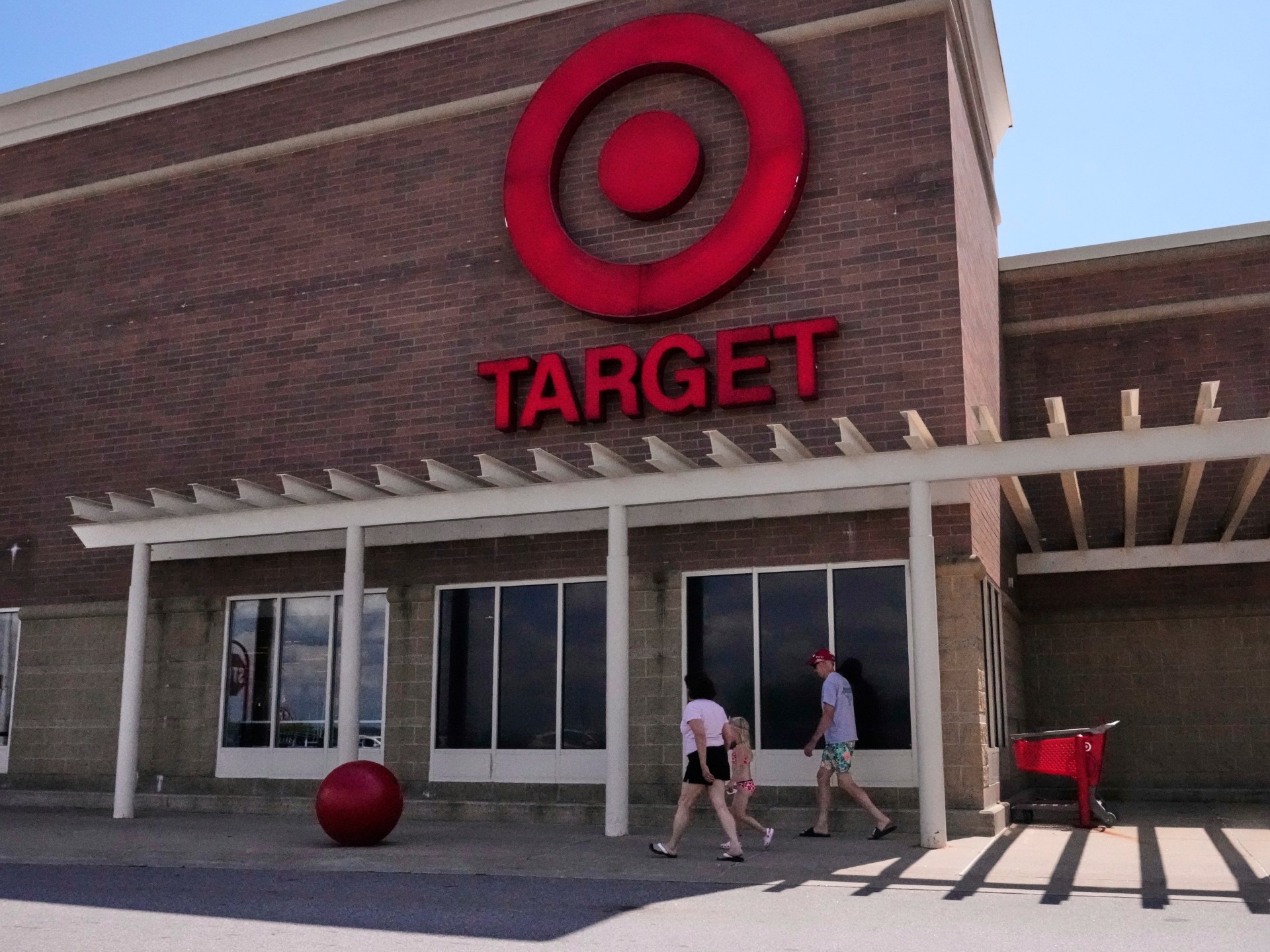Big box retailer Target names new CEO as business struggles | Retail News
Target has named insider Michael Fiddelke its new CEO in an effort to turn the struggling retailer around after a series of challenges that caused its shares to lag vastly behind those of its peers.
On Wednesday, the big box retailer announced that Fiddelke, 49, will take the helm on February 1, 2026, as current CEO Brian Cornell transitions to the role of executive chairman. Fiddelke, a 20-year company veteran, most recently served as chief operating officer.
The news of his promotion was not well received, with the company’s stock falling 10 percent in premarket trading.
“We have very mixed feelings about this appointment,” said Neil Saunders, managing director at GlobalData.
“This is an internal appointment that does not necessarily remedy the problems of entrenched groupthink and the inward-looking mindset that have plagued Target for years,” Saunders said.
Saunders also said he was surprised that Cornell will move into the role of executive chairman, calling it “a reward for failure”.
Saunders said his elevation to executive chairman runs the risk of having the person who has not guided Target well having some influence over future policy.
“In our view, the boardroom needed a clear out,” Saunders said.
Fiddelke said his “number one goal is to get us back to growth.”
His remarks came during a media call following Target’s second-quarter earnings report, during which it stuck to its annual forecasts.
Fiddelke said his three priorities are to improve the quality of merchandise, value and style that Target offers, ensure a more consistent shopper experience and embed more technology in all parts of its business.
“We need to move faster, much faster,” he said.
Target has struggled with merchandise missteps, retail crime and inventory management. Over the past year, it has faced challenges in maintaining steady sales growth, and its pullback on diversity, equity and inclusion policies in January angered some loyal customers who long praised the company’s commitment to inclusiveness.
Target’s sales have also languished as customers defect to Walmart and off-price department store chains like TJ Maxx in search of lower prices. But many analysts think Target is stumbling because consumers no longer consider it the place to go for affordable but stylish products, a niche that long ago earned the retailer the jokingly posh nickname “Tarzhay.”
The company’s struggles have manifested in a consistently weak share performance. The stock is down 23 percent over the last five years, a period of time during which Walmart has risen 125 percent and Costco has more than tripled.
“Given the many challenges TGT has faced over the last several years, it’s not surprising that investors were leaning towards an external hire,” said Steven Shemesh, analyst at RBC Capital Markets.
“In either case, however, TGT faces a steep uphill battle to bridge the gap with competitors in an increasingly digital world,” Shemesh said.
Target reported on Wednesday that second-quarter comparable store sales fell 1.9 percent, smaller than expectations of a 3 percent decline. Operating income margin fell to 5.2 percent from 6.4 percent in the same quarter last year. The decline was driven by deeper markdowns, costs from cancelled purchase orders and weaker demand for discretionary items, which make up a large portion of its product mix.
Target also held on to its annual forecasts after lowering them in May, when it blamed weak demand for the largely discretionary merchandise it sells, such as apparel and electronics.
On tariffs and pricing, the company reiterated its stance from May, stating that price increases would be considered only as a last resort.
Attracting customers
Cornell, who has led Target for 11 years, noted progress in diversifying the company’s sourcing strategy. This includes reducing reliance on store-brand products from China and leveraging Target’s scale to navigate the tariff landscape more effectively.
The retailer has taken steps to turn itself around, including intensifying efforts to entice customers worried about the economy. These efforts have included offering 10,000 new items starting at $1, with most priced under $20, and launching several affordable private-label lines.
Still, consumers remain selective and are motivated by promotions as inflation continues to strain household budgets, Target executives noted on the call.
Target reported second-quarter net sales of $25.21bn, beating estimates of $24.93bn, according to data compiled by LSEG. Excluding items, the company reported earnings per share of $2.05, which topped Wall Street estimates by 2 cents.
Home improvement company Home Depot also retained annual targets but warned of some price increases due to tariffs. Retail bellwether Walmart reports quarterly results on Thursday.
big-box-retailer-target-names-new-ceo-as-business-struggles-retail-news
#Big #box #retailer #Target #names #CEO #business #struggles #Retail #News

